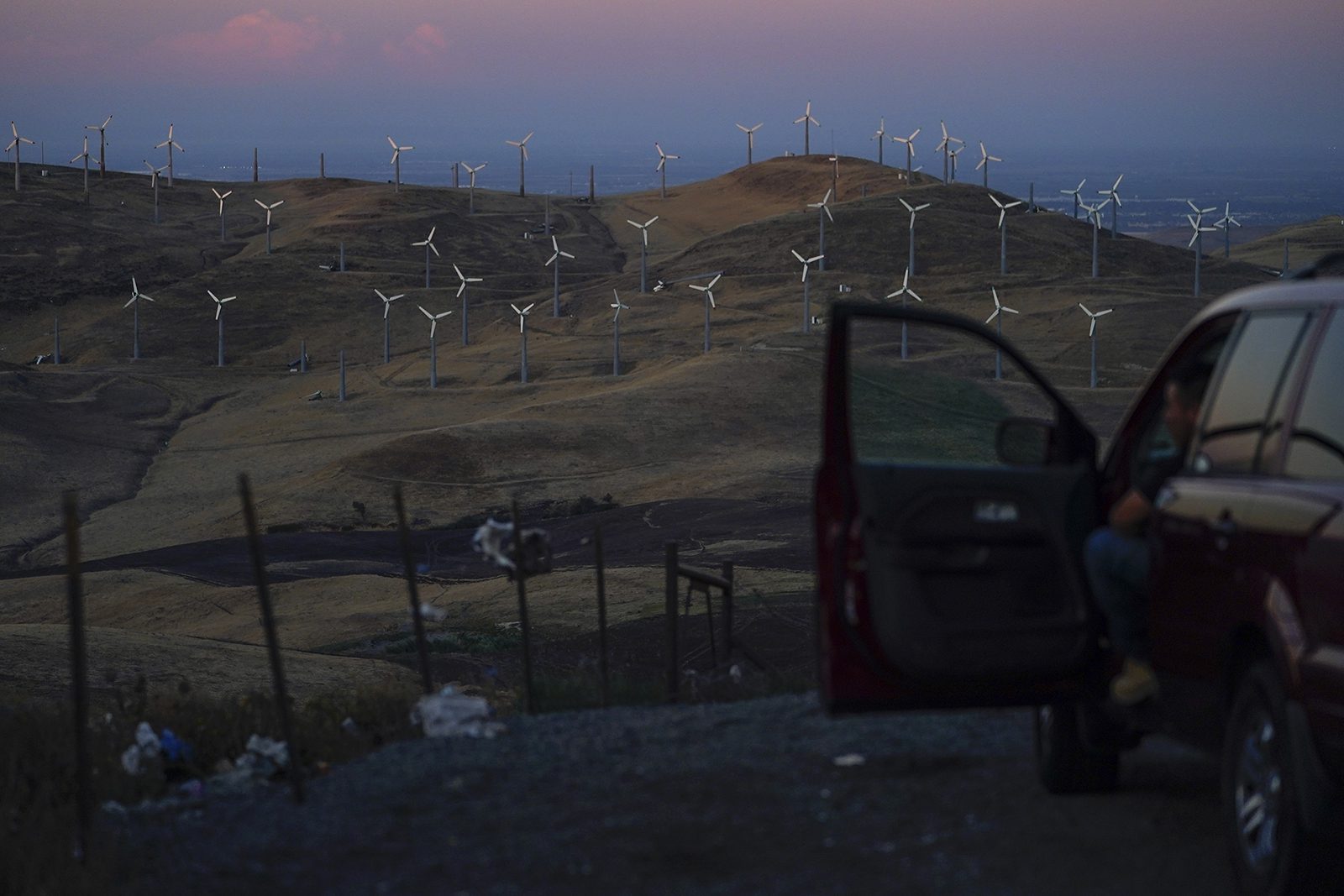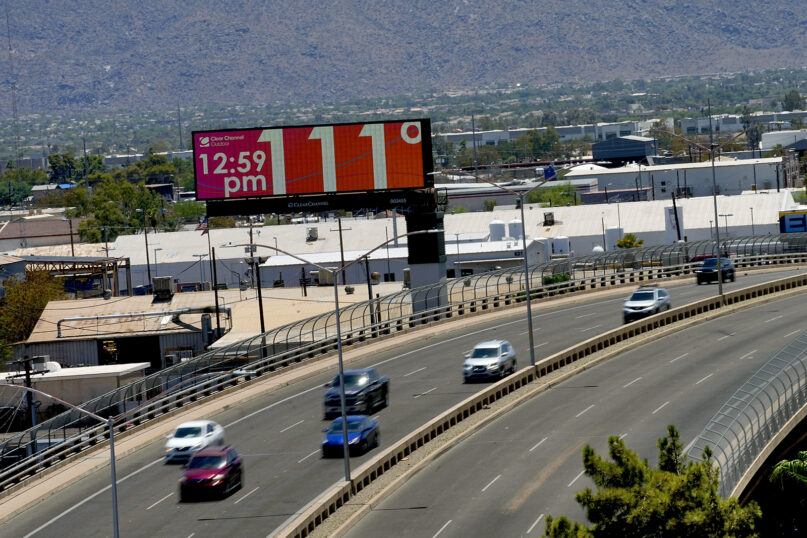(RNS) — This week marks the Jewish holiday of Tisha B’Av. On this major day of communal grieving and reflection, we mourn the many tragedies faced by Jewish people over the course of history and, most specifically, commemorate the destruction of the ancient temple in Jerusalem.
On this holiday, it’s traditional to read from the Bible’s Book of Lamentations: “My eyes are spent with tears, My heart is in tumult, My being melts away.”
The last sentence holds particular resonances as we hear of roads literally buckling and melting in Texas, the result of extreme heat caused by climate change. It’s not only Texas, of course. We’re barely through July, and extreme weather has already wreaked havoc from coast to coast. Record heat across the South and Southwest, catastrophic flooding in the Northeast, Canadian wildfires blowing smoke across the Midwest and Eastern Seaboard.
The ability to recognize and process the profound loss of what we hold dear is what makes us humans and Jews. But like our ancestors before us, we cannot and will not lose ourselves in grief and paralysis. Two thousand years ago, in the wake of the holy temple’s destruction, the Jewish people mourned, but they did not give in to despair. Instead, they responded with creativity and innovation, transforming Jewish practice from a place-based sacrificial system to a religion centered on learning, prayer and mitzvot, or good deeds.
What comes after the destruction of the temple is a story of reenvisioning and rebuilding — not the same structures, but a new way of life. It is a powerful example of a complete societal transformation, the kind of shift we require in this moment as we face climate destruction.
While by no means perfect, the climate care provisions of the Biden administration’s Inflation Reduction Act, passed last year, represent bold and necessary steps in our country’s response to the climate crisis. Our organizations are proud to have done our part to help pass the IRA’s historic investments in clean energy, good jobs and environmental justice, a down payment on the transformative change we need.

A man looks out at wind turbines in Livermore, Calif., Aug. 10, 2022. (AP Photo/Godofredo A. Vásquez)
However, the IRA alone is not ambitious enough to turn the tide of the climate crisis. For this reason, we welcome the Environmental Protection Agency’s recent release of a series of proposed standards to limit the pollution caused by the burning of fossil fuels, coal, oil and gas, which poisons our air and water and accelerates the climate crisis.
Among these new standards: vehicle tailpipe pollution standards to limit pollution from transportation, the leading contributor of the climate pollution driving the climate crisis; mercury and air toxics standards to limit hazardous air pollutants from coal-fired power plants that cause cancer and cardiovascular disease, and pose a particular risk to pregnant women and babies; and critically, standards that curb carbon pollution from new and existing coal- and gas-fired power plants.
By approving the plan to cut climate pollution from power plants, our nation’s leaders can give all Americans a fighting chance to avert climate destruction. As Jews, we feel it’s our obligation to urge them to take decisive action.
Strong stands will also deliver on the Jewish imperative to pursue justice. For too long, oil rigs, fracking wells and dirty power plants have been built in Black and brown people’s backyards, and pipelines through Indigenous lands and waters. This environmental racism is perpetuated by our continued reliance on fossil fuels, and only bold action will address this.
On its face the Jewish holiday of Tisha B’Av is about destruction and loss, but it is also about innovative action and radical transformation. In this spirit, we urge EPA Administrator Michael Regan and President Joe Biden to seize this moment to do what science and justice demand and adopt strong pollution standards without delay. Our collective future depends on it.
(Rabbi Jennie Rosenn is the founder and CEO of Dayenu: A Jewish Call to Climate Action. Rabbi Jonah Dov Pesner is director of the Religious Action Center of Reform Judaism and senior vice president of the Union for Reform Judaism. The views expressed in this commentary do not necessarily reflect those of Religion News Service.)





